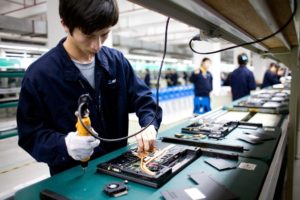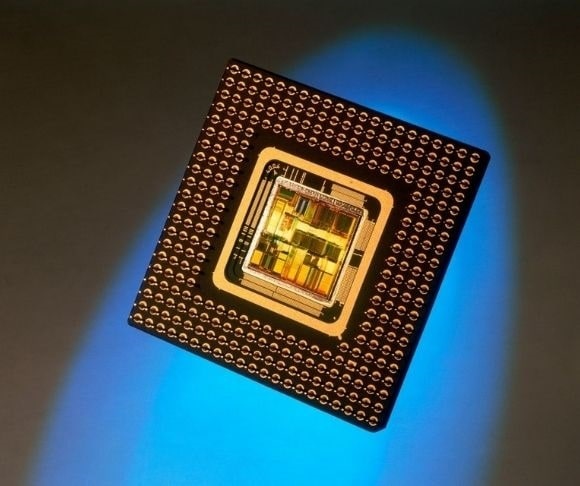The global chip shortage, another result of the ongoing COVID-19 pandemic, has caused disruptions in all things electronic. From self-driving cars to 5G network development, to artificial intelligence, product shortages of semiconductor microchips are to blame. Out-of-stock electronics this holiday season are an issue that will hopefully not persist. U.S. representatives are visiting Taiwan, despite China’s discouragement, to discuss the microchip shortage among other things. As one of the largest consumers, but smallest producers of chips, the U.S. is hoping to make a change moving forward.
Defying China

(Photo by Ryan Pyle/Corbis via Getty Images)
Five U.S. representatives met with Taiwanese government officials on Thursday. When the news broke that the U.S. officials would be flying out to Taiwan, the Chinese Embassy sent a blunt and aggressive message to Rep. Elissa Slotkin (D-MI), telling her to call off the trip. According to Slotkin, the statement included, “We strongly urge the Congresswoman to immediately cancel the planned visit to Taiwan, and not to support and embolden separatist forces of ‘Taiwan independence,’ lest it cause huge damage to the China-US relations and the peace and stability of Taiwan Traits.”
The bipartisan delegation went on the trip anyway to discuss a variety of topics, but Representative Slotkin said supply chain issues and microchip production were are on the agenda. The trip could strain U.S.-China relations, especially with this move signaling the United States recognizes Taiwan’s desire for independence from China.
Protecting National Security
Taiwan is home to the world’s largest contract chipmaker, the Taiwan Semiconductor Manufacturing Company (TSMC). Any disruption caused by China’s squashing of desired Taiwanese independence could be detrimental to production.
Many experts are concerned that the self-ruled democracy is directly linked to U.S. supply chain security and if China takes full control over Taiwan and its production of microchips, U.S. national security would be at stake. In that case, China would be manufacturing microchips that could end up in every home in America.
The State Department also shared that they have asked the world’s top chipmakers to share supply chain information to address the global shortage, as the United States aims to develop domestic production. The U.S. used to produce 37% of the world’s semiconductors, but now it is only responsible for 12%. However, Congress in conjunction with innovative corporations here in the U.S. are hoping to reverse that.
Samsung Takes the Lead at Home

(Photo by David McNew/Getty Images)
Samsung Electronics announced this week they are building a $17 billion semiconductor factory in Taylor, Texas. Although it won’t be producing until the second half of 2024, it will help address the extremely low and declining domestic production. Processors for data center, 5G networks, smartphones, artificial intelligence platforms, and high-performance computing will be manufactured at the plant. The facility will produce chips not only for Samsung products but for other customers as well.
Following Samsung’s announcement, Secretary of Commerce Gina Raimondo shared a statement reiterating that domestic production of semiconductor microchips “is critical for our national and economic security.” The lack of microchips has been damaging to the economy over the last few years and the demand will continue to rise. TSMC is also building a $12 billion facility in Arizona, along with two other $20 billion Intel manufacturing plants.
CHIPS Act
Samsung received a $27 million grant from the state of Texas to build the manufacturing plant, which is expected to create at least 2,000 jobs. Large tax incentives and breaks are expected for the facility. The city of Taylor initially offered Samsung a property tax break of over 90% for the first ten years. Samsung could also receive $3 billion in incentives according to Texas Senator John Cornyn. Potentially bringing the biggest opportunity for corporations is the CHIPS Act.
The CHIPS Act, should it pass, could gift Samsung billions in incentives. The “CHIPS for America Act” aims to “restore American leadership in semiconductor manufacturing by increasing Federal incentives to enable advanced research and development, secure the supply chain, and ensure long-term national security and economic competitiveness.”
The House has yet to act on CHIPS, but it was approved in principle as part of the 2021 National Defense Authorization Act. Some version is expected to pass, but its level of funding, contents, and timing are all still in question.
~ Read more from Keelin Ferris.




